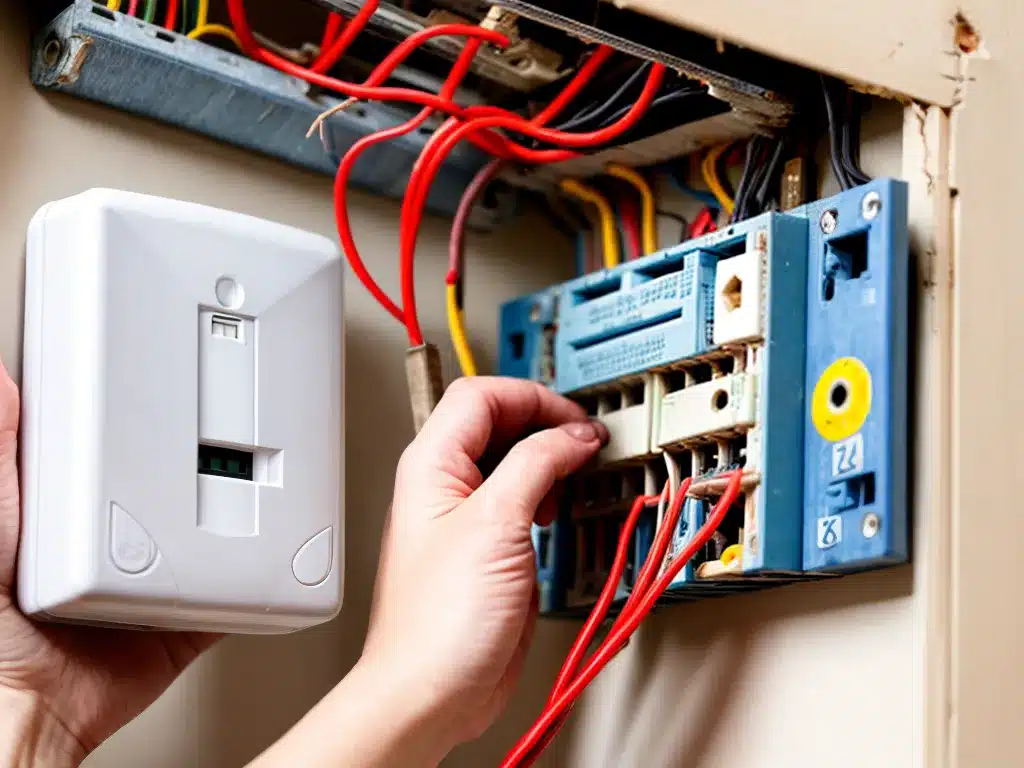
How to Safely Upgrade Your Home’s Outdated Electrical System
Introduction
Upgrading your home’s electrical system can provide a number of benefits, such as accommodating more electronics and appliances, improving safety, and increasing your home’s value. However, working with electricity can be extremely dangerous if not done properly. This guide will walk you through how to safely upgrade your outdated electrical system.
Assess Your Current Electrical System
The first step is to assess the current state of your home’s electrical system to identify areas that need upgrading. Here are some key things to check:
-
Service panel capacity – Check the amperage rating of your electrical panel and calculate your home’s electrical load. If your panel doesn’t have enough capacity for your needs, an upgrade is required.
-
Wiring – Inspect the wiring for damage and gauge size. Outdated wiring that is too small or damaged can present fire and shock hazards. Upgrading to thicker gauge wiring may be necessary.
-
Grounding – Ensure your system has proper grounding. Ungrounded electrical systems are very unsafe.
-
Receptacles – Check for ungrounded two-prong outlets or older receptacles that should be upgraded to GFCI outlets for added protection from shocks.
-
Lighting – Assess if your lighting is adequate for the space. Additions or remodels may require extra lighting circuits.
Hire a Licensed Electrician
Electrical work can be extremely dangerous and even deadly if wiring is not handled properly. For your safety, hire a licensed electrician rather than attempting to do a full electrical panel upgrade yourself.
Ask potential electricians for the following:
-
Proof of licensing – Verify they are fully licensed in your state.
-
Insurance certificates – Ensure they carry liability insurance as well as workers’ compensation.
-
References – Get referrals from previous clients and check online reviews.
-
Detailed quotes – Get quotes from 3+ contractors outlining the scope of work.
Have the Service Panel Replaced
The service panel (also known as the breaker box) is the central component that needs to be upgraded to increase capacity. Key steps in replacing an electrical panel include:
-
Shutting off the main power – The electrician will shut off the main breaker and disconnect the wires before removing the old panel.
-
Installing a new panel – A new panel that meets your capacity needs will be securely mounted.
-
Rewiring the new panel – Your circuits will be properly rewired into the new breaker panel.
-
Updating the grounding – Grounding will be brought up to code if needed.
-
Connecting the power – Electrical meter and main power will be reconnected.
Upgrade Interior Wiring
Upgrading interior wiring is highly recommended when replacing an electrical panel. This ensures everything is brought up to the latest safety standards.
-
Old, damaged, or undersized wiring should be replaced.
-
Aluminum wiring requires special treatment to prevent failures and fires.
-
Two-prong outlets need to be upgraded to modern, grounded three-prong outlets.
-
GFCI outlets provide important shock protection in bathrooms, kitchens, and other locations.
-
AFCI breakers help protect against electrical arcs and fires.
Add Additional Circuits
When upgrading a panel, it’s a good opportunity to add additional circuits to eliminate tripped breakers and increase capacity.
-
Evaluate your lighting needs and add circuits if needed, especially for LED lighting.
-
To support more appliances and electronics, have dedicated 20-amp circuits added.
-
For high-draw appliances like air conditioners, ovens, and hot tubs, consult your electrician on requirements for larger 30-amp or 40-amp circuits.
-
If adding solar power, install special wiring and circuits to support connections to panels.
Safety Tips During the Upgrade
Your family’s safety should be a top priority during this substantial electrical project:
-
Turn off unnecessary electrical devices to avoid issues when the power is cycled on and off.
-
Keep children and pets away from the work area for their safety.
-
Never attempt to operate your electrical system while the work is in progress.
-
If you have any concerns about the project, speak up to your electrician right away.
-
Allow only certified electricians to make wire connections and handle your electrical wiring.
Conclusion
Upgrading your outdated or insufficient electrical system with new wiring, a new panel, and added circuits provides critical safety enhancements, increases your home’s value, and allows you to meet all of your household electrical needs for years to come. But this complex project requires professional expertise—always hire a licensed electrician for your safety.
